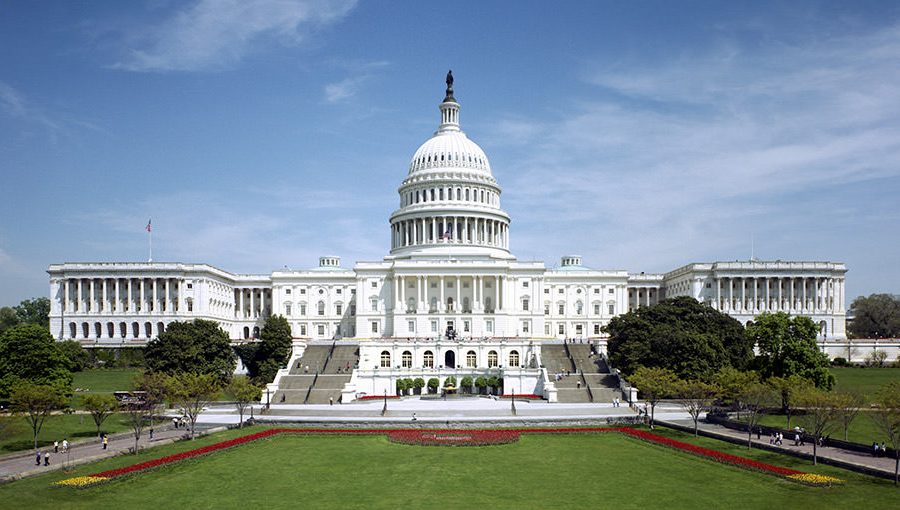House committee approves bill with $10 billion for NG911
homeMembers of the House Energy and Commerce Committee today voted unanimously to send a bill to the House floor that would extend the FCC’s spectrum-auction authority and dedicate $10 billion from a future auction to fund emergency call centers’ transition to IP-based, next-generation 911 (NG911) technology.
Rep. Frank Pallone (D-N.J.), chairman of the committee, noted that H.R. 7624—the “Spectrum Innovation Act of 2022”—continues to require the FCC to auction at least 200 MHz of spectrum in the 3.1-3.45 GHz band. Proceeds from this auction would fill the funding gap in the “rip-and-replace” initiative to rid U.S. networks of gear from China-based firms and would provide NG911 funding nationwide.
However, the version of the bill that passed committee also incorporated a bill that would extend the FCC’s auction authority—currently set to expire at the end of September—for an additional 18 months.
Most Beltway sources view this FCC auction-authority language as “must-pass” legislation, because FCC auctions historically have generated hundreds of billions in revenue for Congress to use during the past three decades. As a result, any other items that remain attached to it when it is expected to be enacted during the next 10 weeks would be expected to pass, according to the sources.
Pallone applauded the new version of the “Spectrum Innovation Act of 2022.”
“I think that, collectively, these measures will generate billions of dollars in spectrum-auction proceeds to fund overdue, important policies priorities in a way that’s budget-neutral,” Pallone said during the committee meeting.
Federal funds of $10 billion for NG911 would dwarf all other federal money that has been earmarked previously for 911, which historically has been funded almost entirely with money generated at the state and local levels. However, the $10 billion called for in the bill passed by the committee is significantly less than the $15 billion hat many public-safety officials believe is needed for NG911 implementation, particularly when cybersecurity and training needs are considered.
Pallone said he will work to ensure that NG911 funding does not stop at the $10 billion level.
“In my view, the funds generated by this bill for next-generation 911 should be considered as an initial downpayment for the program,” Pallone said.
Rep. Anna Eshoo (D-Calif.)—a committee member and a co-founder of the Congressional NextGen 911 Caucus, echoed this sentiment.
“While I’m pleased that this bill allows for up to $10 billion to be used for NG911, it’s important to note that—according to cost estimates—the true cost of a nationwide NG911 adoption is closer to $10 billion,” Eshoo said during the committee meeting. “But $10 billion is more than a hell of a start.”
But the $10 billion for NG911 would not fully guaranteed, even if the bill is approved by the House, the Senate and President Joe Biden. That’s because the NG911 funding is dependent upon the amount of money bidders spend to secure airwaves in the proposed 3.1-3.45 GHz spectrum auction.
As approved by a House subcommittee in June, the FCC and the National Telecommunications and Information Administration (NTIA) would have two years to identify at least 200 MHz of current federal spectrum in the 3.1-3.4 GHz band that the FCC could auction as exclusive or shared-use airwaves. The FCC would be required to conduct the auction within seven years of enactment of H.R. 7624.
Proceeds from the auction first would be used to pay relocation costs for spectrum incumbents, with the next $3.4 billion allocated to fund the massive shortfall in the FCC’s “rip and replace” program that is designed to rid U.S. commercial networks of “untrusted” equipment—notably, gear from China-based vendors Huawei and ZTE.
After these financial obligations are met, the next $10 billion in proceeds from the proposed mid-band auction would be dedicated to funding the NG911 transition at 911 centers throughout the U.S. Of course, this $10 billion in funding could be realized only if the winning bids from the auction were great enough to support all financial obligations cited in the legislation.
This notion of tying FCC auction revenue to NG911 funding was an idea proposed publicly by FCC Chairwoman Jessica Rosenworcel in February—a fact that Pallone and other committee members acknowledged during the committee hearing.

















